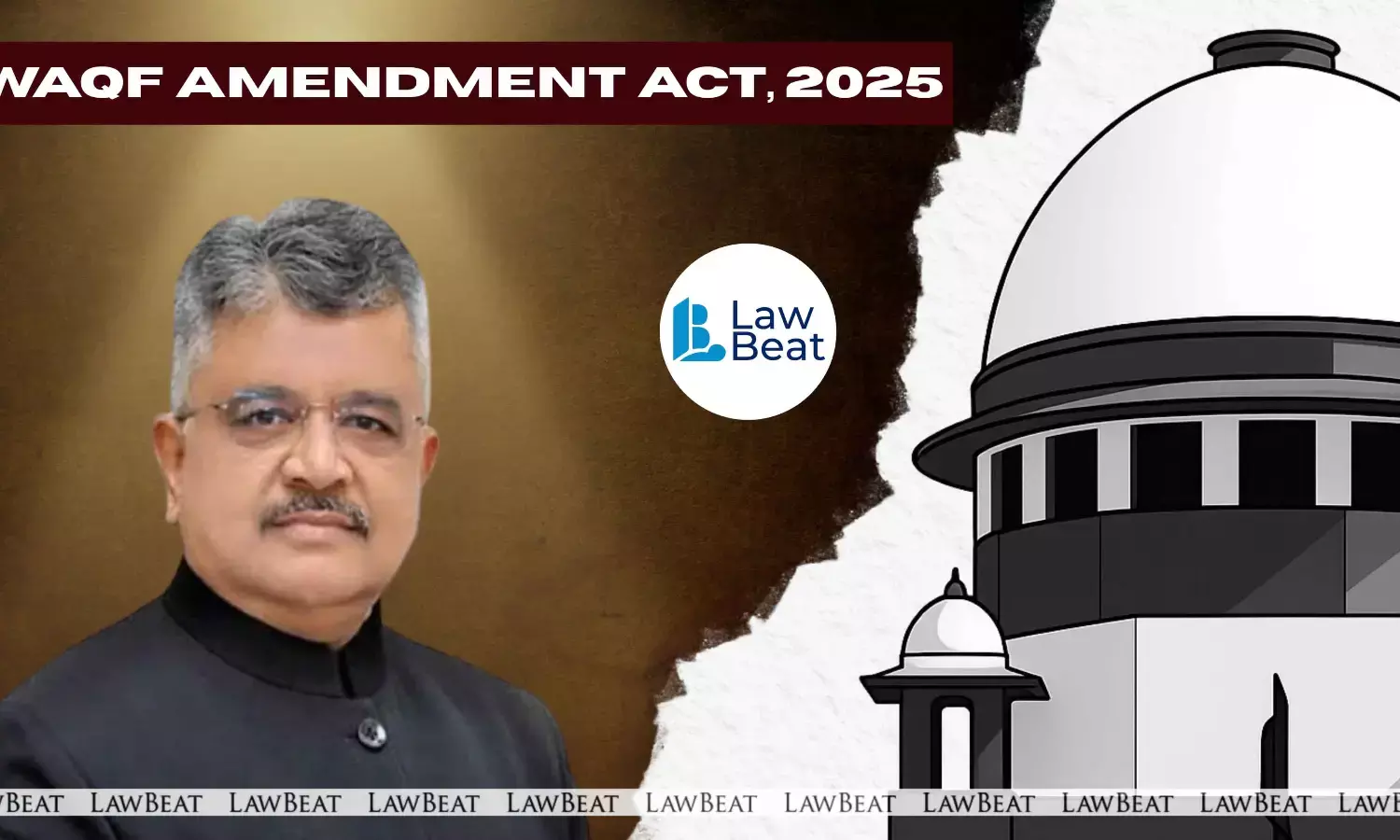"Waqf Not An Essential Religious Practice": SG Mehta Tells Supreme Court

The Supreme Court of India on Wednesday resumed hearing a batch of petitions challenging the constitutional validity of the Waqf (Amendment) Act, 2025.
During the post-lunch session, Solicitor General Tushar Mehta continued his forceful defence of the legislation.
The matter is being heard by a Bench comprising Chief Justice B.R. Gavai and Justice A.G. Masih.
At the outset of the post-lunch session, SG Mehta addressed concerns raised about the treatment of government property allegedly declared as waqf by user.
Emphasising the need to protect public assets, he stated, “The government is the custodian of public land held in trust for crores of citizens. There is a false narrative being propagated that waqf properties are being arbitrarily taken away. The country is being misled.”
Responding to a query from the Bench regarding the applicable statute, the SG referred to the Waqf Act, 1995, clarifying that the amendment of 2025 introduced necessary safeguards. “Registration of waqf properties is mandatory. The law is liberal in who may initiate registration, the goal is to bring public religious and charitable endowments under regulatory oversight,” Mehta said.
He referred to a case filed by the State of Andhra Pradesh against the Waqf Board, illustrating “glaring facts” where government lands were declared as waqf without due legal process. “The notion that the government is acting as a judge in its own cause is flawed,” he said, adding that revenue officers are statutorily empowered to determine revenue entries. Unless there is evidence of personal bias, such decisions cannot be invalidated.
On the controversial concept of waqf by user, SG Mehta asserted that it is not a fundamental right, but a right purely created by statute. “If a right is conferred by legislation, it can equally be withdrawn,” he submitted, relying on settled legal principles.
Addressing the broader religious context, Mehta underscored: “Waqf is an Islamic concept, no dispute about it. But it is not an essential part of Islam. Charity is a component of every religion; Hinduism, Christianity, Sikhism, but the Court has consistently held that charity does not qualify as an essential religious practice.”
He cited Dr. B.R. Ambedkar’s Constituent Assembly speech, drawing a distinction between religious practices and essential religious practices, a critical test developed by the Supreme Court in earlier jurisprudence.
“Suppose the Muslim community, largely impoverished, chooses not to create waqf. Would they cease to be Muslims?” Mehta asked rhetorically. “There are countries with no concept of waqf. Charitable institutions exist, but they’re registered as trusts.”
On the inclusion of non-Muslim members in Waqf Boards, SG Mehta clarified that the Ministry of Minority Affairs had placed all relevant facts before the Joint Parliamentary Committee (JPC). “There’s a deliberate misrepresentation that non-Muslims will dominate the Boards. That is simply not true. At the Central level, out of 22 members, only a maximum of four may be non-Muslims. At the State level, in a Board of 11 members, only up to three may be non-Muslims—subject to a further cap if an ex officio member is already non-Muslim," the SG argued.
The SG added that non-Muslims can be beneficiaries or interested parties in a waqf and their representation in a body performing secular regulatory functions does not infringe upon religious freedoms.
Drawing a comparison with temple administration, Mehta noted that in Maharashtra and Gujarat, all temples fall under the Bombay Public Trusts Act, and the Charity Commissioner, who may be a Muslim, supervises even purely religious Hindu institutions. “Historically, waqf too was administered by non-Muslim Charity Commissioners under secular laws," the SG argued.
On whether the matter merited a stay, Mehta argued that no prejudice is caused even if two non-Muslim members are appointed to the Waqf Board. “The real religious functions are conducted by the Mutawalli or the Sachidanand, and none of the amendments affect their roles," he submitted.
The SG also addressed the applicability of the Limitation Act, stating that it was not previously applicable to waqf matters but has now been expressly made applicable through the 2025 amendment, thereby providing greater legal certainty.
SG Mehta also rebutted an earlier submission by Senior Advocate Kapil Sibal, clarifying: “Mr. Sibal said that Sections 3(D) and 3(E) were not circulated within the JPC. But to claim they were not placed before the Committee is incorrect.”
The hearing will continue tomorrow. The Solicitor General will conclude his arguments, following which the petitioners will have 30 minutes for rebuttal.
Notably, in the morning session before the Supreme Court SG Mehta launching a strong defence of the legislation, termed the allegations of a “wholesale capture” of waqf properties as “misleading and false.”
Case Title: In Re: The Waqf (Amendment) Act, 2025
